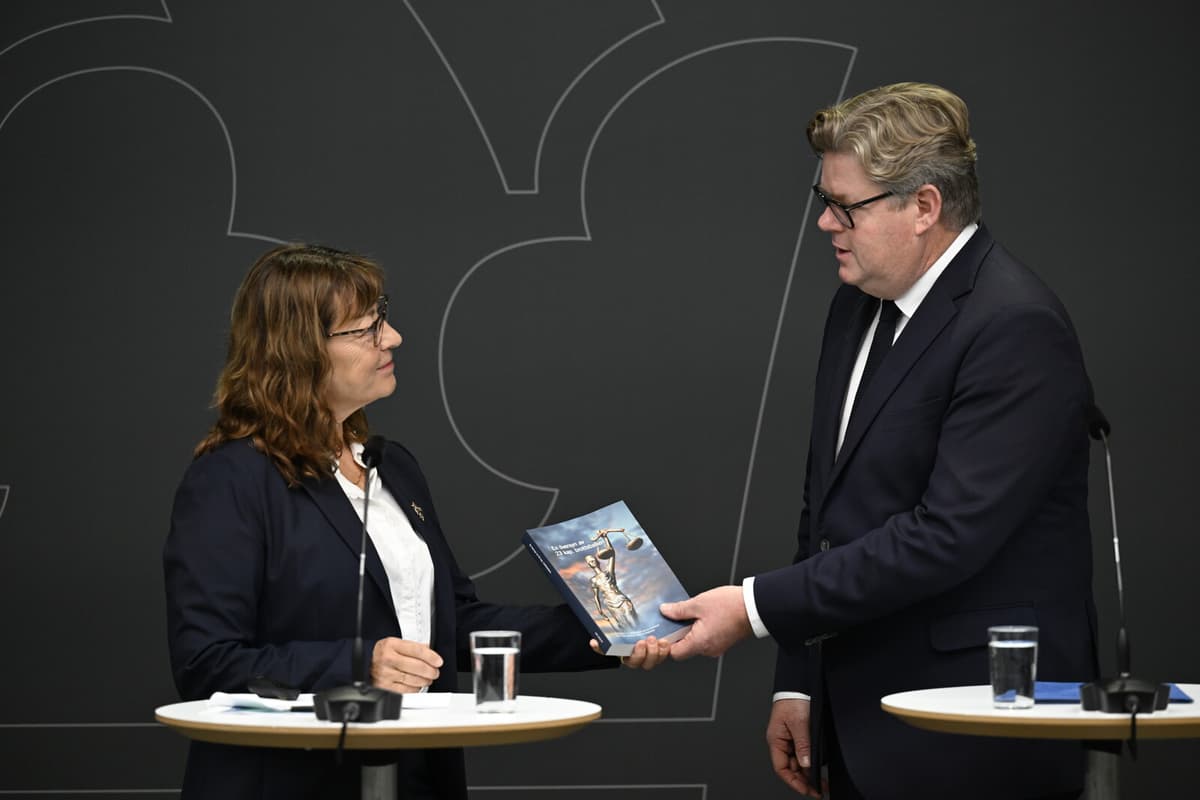Technology and reality have in some cases outpaced legislation. Therefore, a number of changes are now being proposed to fill the gaps regarding so-called "non-independent criminal forms", i.e. such things as attempts, preparations, and instigations to commit crimes.
The aim is to a greater extent be able to catch the leaders (in gangs) and to enable more young people to get out, says the government's investigator, Chief Prosecutor Lise Tamm.
She proposes that more actions than today should be covered by the criminal forms. For example, people who discuss murder plans in a chat.
We have seen many such chats where it says "he should die", "take him, I'll fix a car", "now the hunt begins" and so on. This has not been considered instigation, she says.
Start a chat
Even starting a group chat for murder planning, mapping out a victim, arranging a flat before, for example, a murder, and luring a potential crime victim should be punishable, according to the investigator.
Tamm also wants more everyday objects than today to be considered as tools for preparation crimes, such as ropes, double clothing, and disguises.
She emphasizes that all actions must be linked to a criminal context.
It must still be proven that it is part of the planning of a specific crime and that there is intent.
Advertisement
To give young people an opportunity to withdraw from a planned crime, the investigator proposes a new possibility for voluntary withdrawal.
But it must happen early enough that the information prevents the crime from being committed, says Tamm.
The idea is that a young person who withdraws and thereby prevents a crime should be able to avoid punishment.
Decoy weapons
Tamm has also been tasked with examining the issue of when the police set up traps with decoy weapons. Last year, two men were acquitted by the Supreme Court of attempted weapons offenses, after the police replaced their weapons with replicas – a verdict described as a disaster by prosecutors and gang investigators.
Lise Tamm proposes a special regulation to address this problem.
The proposals are now being sent out for review.
This is an incredibly important part aimed at getting at both the breadth and the height of those involved in organized crime, says Justice Minister Gunnar Strömmer (M).
The government actually wants to go further. The goal is a general criminalization of participation in criminal gangs. However, this requires a change in the constitution and can only become a reality in the next term of office.
Investigator Lise Tamm proposes that the entire chapter 23 of the penal code, which regulates the non-independent criminal forms, should be repealed and replaced with a new chapter.
The punishable area for preparation and instigation should be expanded and more actions should be covered.
For example, mapping out a crime victim, reconnaissance before a crime, starting a group chat about a murder plan, establishing contact with a potential crime victim, and creating companies or accounts whose sole purpose is to be used for crime.
The context is crucial; there must be intent and purpose to commit a specific crime, and the prosecutor has the burden of proof.
The new laws are proposed to come into force on November 1 next year.






